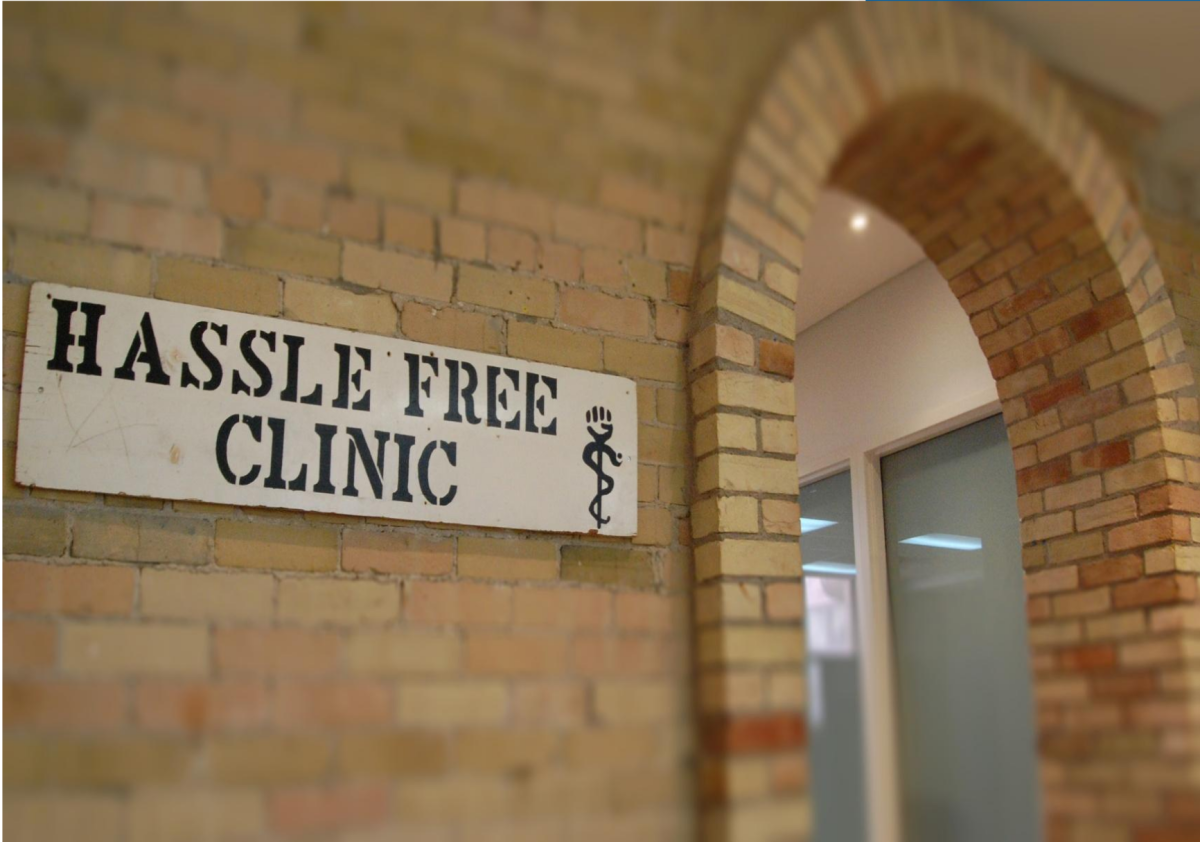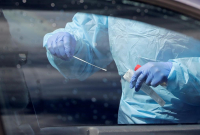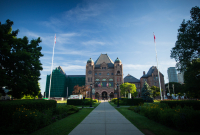Support strong Canadian climate journalism for 2025
The waiting room at the Hassle Free Clinic — nestled between the downtown campus of Ryerson University and the gay village of Church Street in Toronto — used to often fill to overflowing with patients checking on their sexual health.
These days, hours have been cut and no one can just drop in. Those that want to book an appointment are triaged by phone or video call; only those with symptoms of a sexually transmitted infection (STI) or who have been intimate with someone who has tested positive are given a time to come in for tests.
But while the strictures of social isolation mean sexual activity between people who do not live together has likely fallen dramatically, it would be a mistake to assume it has gone to zero, the co-director of the clinic says.
“Certainly people are still having sex because we’re still getting positive test results,” Jane Greer said in a phone interview. “I think there are vast amounts of unmet needs.”
“Overall STI risks have gone down because people aren’t out and about as much, but when more testing is available the numbers will go up,” Greer said.
She said the clinic is still providing contraception, squeezing in repeat pap tests when abnormal results are shown, and dealing with a sharp jump in referrals for treatment from family doctors. But it has had to cut HIV testing and halt or sharply curtail counselling services, including around domestic violence and sexual assault, as well as risky sexual behavior.

It’s a tough balance, Greer said, between restricting the number of tests the clinic sends to Public Health Ontario laboratories that are struggling to work though a COVID-19 test backlog, and ensuring they meet the needs of the clinic's patients — the majority of whom identify as lesbian, gay, bisexual, trans or queer (LGBTQ).
The clinic typically sends between 150 and 200 specimens a day to the public labs, but that has been cut sharply with the reduced access.
“It doesn’t feel good,” she said. “We recognize these restrictions have implications.”

LGBTQ people face a range of related barriers to adequate health care, with queer youth much more likely to be homeless and queer people of all ages more likely to have unmet mental health needs, which can be caused by isolation from family and societal prejudice.
Researchers at University of Toronto say people who identify as LGBTQ are also more likely to have compromised immune systems, rate their health as poor and are less likely to seek urgent care — all of which put them in greater danger from COVID-19.
Those challenges are only exacerbated with the heightened stress of COVID-19 and the cancellation of community health and social resources.
“If you have poor mental health and rely on community resources, as a lot of queer people do, or rely on chosen family, then you’ll be more likely to have quarantine affect you negatively,” said Miranda Schreiber, one of the U of T researchers.

Sexual health services elsewhere in the city have also been cut sharply in the wake of the pandemic.
“Due to COVID-19, Crossways Clinic is currently the only Toronto Public Health sexual health clinic continuing to operate and provide client services,” said Toronto Public Health’s Associate Medical Officer of Health, Dr. Rita Shahin. “Clients with urgent concerns are being seen by appointment only and are required to call ahead for assessment and screening by our nurses.”
She said that Talk Shop, The Jane Street Clinic and Scarborough Sexual Health Clinic are all closed until further notice.
The four clinics operated by Toronto Public Health served around 1,500 clients per month in 2019. Crossways Clinic is now seeing about 50 clients per week for urgent STI and contraceptive issues and providing phone counselling to another 25 clients a week.
The Hassle Free Clinic, along with the Birth Control and Sexual Health Centre and Immigrant Women's Health Centre, is funded by Toronto Public Health but operated independently. A string of independent clinics are either closed or operating on sharply reduced hours.
Alastair Sharp / Local Journalism Initiative
Editor's note: This article was updated at 9:05 p.m. to include additional details from the City of Toronto







Comments